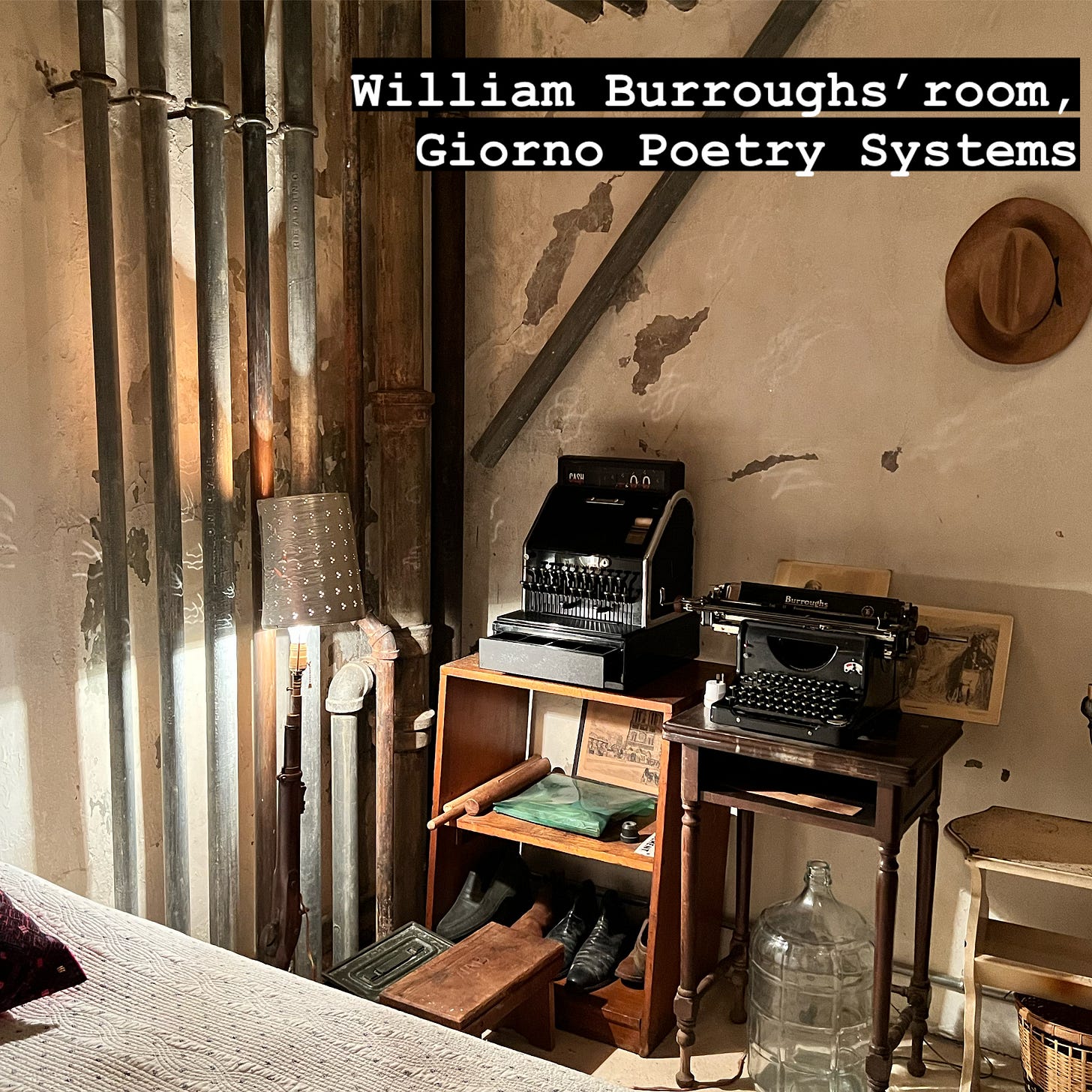Why Free Speech Absolutism Is Wrong
And How We Can Address It
A naked lunch is natural to us,
we eat reality sandwiches.
But allegories are so much lettuce.
Don't hide the madness.
— Allen Ginsberg
Since my dialogue with Matt Stoller (please watch it here), I have been reflecting on the subject of free speech. A distorted, ahistorical view on this topic is one of the issues that have led former left-leaning and progressive influencers like Russell Brand and Charles Eisenstein to swerve toward the Trump-ian Right. Brand, for instance, claims that the establishment and the liberal “Deep State” wages a "war against free speech.” He accuses these shadowy forces of collaborating to stifle independent voices — particularly his own, particularly after sexual misconduct allegations were made against him and Youtube demonetized his channel. Brand argues this is part of a broader effort to control dissent and suppress alternative viewpoints (like those of his close prayer-buddy Alex Jones).
I believe we need to unpack this topic more carefully, with more nuance.
We seem to have developed a myopic perspective on free speech at this point. I find it fascinating that defense of free speech — in some absolute sense — shifted from the Left to the Right in recent decades. I was connected to the 1950s and 60s literary counterculture through my mother, Joyce Johnson. Her friends included Beat authors Jack Kerouac and Allen Ginsberg. She wrote about them in her memoir, Minor Characters.
As a book editor, my mother published Revolution for the Hell of It (1968) by “free” (Abbie Hoffman, Yippie activist), his account of the protests and chaos leading up to the Chicago Ten trials. In that book, a reporter asked Hoffman if he defended free speech in all situations, using the example of someone yelling fire in a crowded theater. Hoffman responded prankishly, yelling, “Fire!” Ginsberg, William Burroughs, and Henry Miller fought and won obscenity trials to prevent the banning of their books.

What differentiates the counterculture Left’s past defense of free speech and the Right Wing’s defense of it today?
Historically, the Left's defense of free speech focused on protecting artistic expression, dissent, and countercultural voices that challenged conservative social norms, moral standards, and authority. The battle often centered on literature, art, and satire that pushed the boundaries of public decency, such as Lenny Bruce's comedy, or Burroughs and Miller’s work, which dealt with taboo topics (sex, drugs, and existential outrage against society). This type of speech was framed as liberating, artistic, smashing oppressive cultural restrictions, promoting individual autonomy and creative freedom. The Left saw censorship as a tool used by conservative and authoritarian forces to maintain control over morality, culture, and thought.
In contrast, the Right's recent defense of free speech has centered on political discourse and their opposition to what they see as progressive orthodoxies, particularly in academic, media, and online spaces. The speech vociferously defended by Right Wing pundits frequently involves challenges to what became progressive norms around race, gender, sexuality, and identity politics. It is a backlash against the success of the counterculture, which liberalized moral structures, leading to a “decoding" of values that conservatives and many Christians find repugnant.
For example, Jordan Peterson's refusal to comply with mandated use of gender pronouns was framed as resisting compelled speech, while Elon Musk's advocacy for fewer content restrictions on Twitter is presented as a stand against what many conservatives view as censorship of right-wing political speech or ideas critical of social justice movements. The Right argues that the Left has become authoritarian in its control over speech, by de-platforming or censoring figures like Donald Trump, Nazi revisionist historians, vaccine skeptics, or content perceived as harmful, conspiratorial, or offensive to marginalized groups. Musk bought Twitter, in part, to reinstate these perspectives (and amplify his own boorish views).
While the old Left defended speech that pushed cultural boundaries against conservative norms, the new Right defends speech that challenges progressive political orthodoxies, particularly those linked to identity politics. Both sides view themselves as fighting against different forms of authoritarian control—moral authority and obsolete traditional values for the Left in the past, and political correctness and "cancel culture" for the Right today. It is an interesting toggle.
The defense of free speech, championed by Right Wing influencers such as Musk and Peterson, often gets framed in absolutist or Apocalyptic terms. This view insists on the right to say anything, anywhere, at any time, with minimal interference from governments or institutions. Yet, as Stoller clarifies, this is a radical departure from the historical and legal traditions of free speech in the United States. Rather than an unbounded individual right, free speech has traditionally been understood within a larger civic framework, balancing personal expression with the health of political communities and societal order.
Keep reading with a 7-day free trial
Subscribe to Liminal News With Daniel Pinchbeck to keep reading this post and get 7 days of free access to the full post archives.


